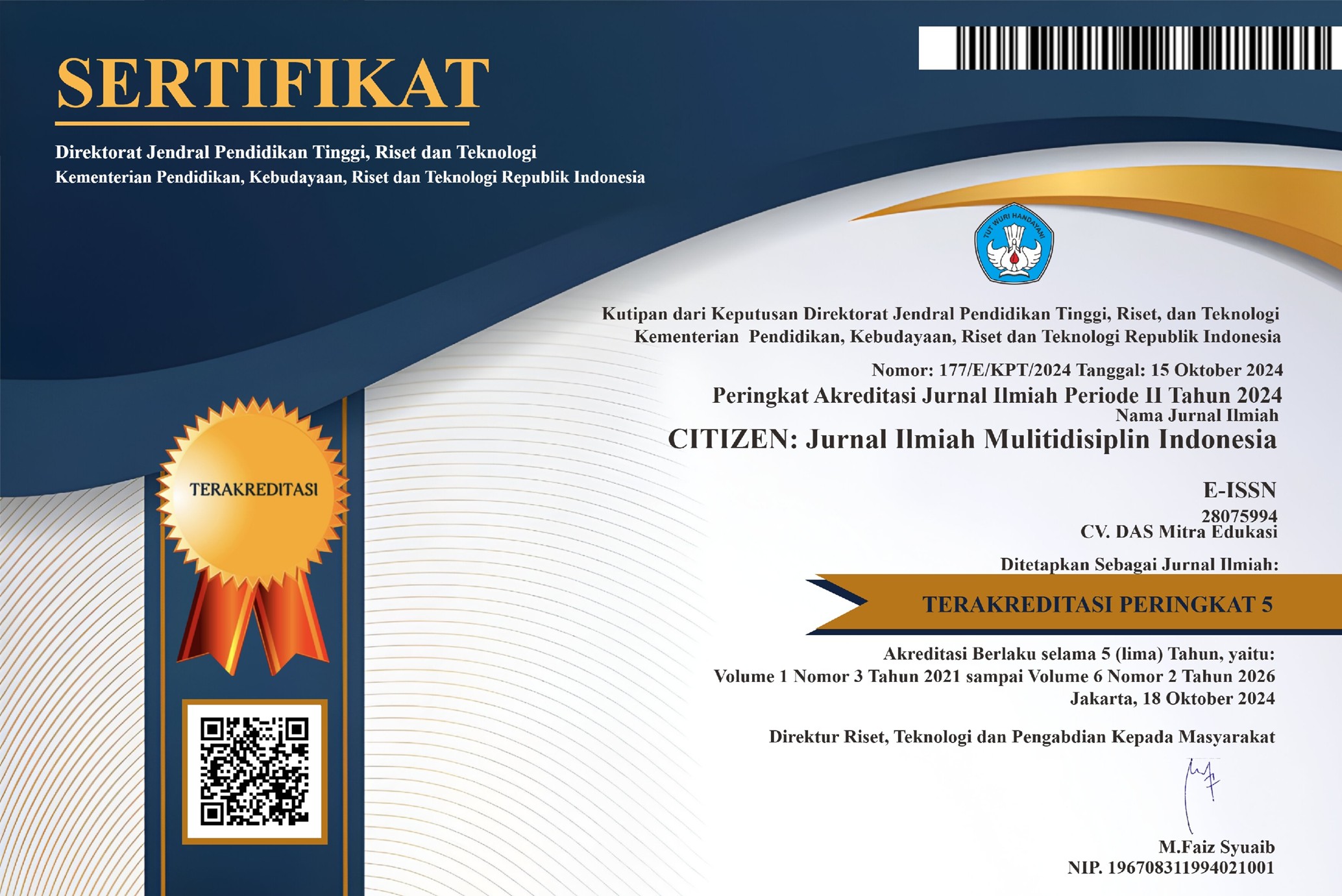KONSEP SMART CITY DALAM PEMBANGUNAN BERKELANJUTAN
DOI:
https://doi.org/10.53866/jimi.v2i3.96Keywords:
Smart City, sustainable development, technology developmentAbstract
Current technological developments provide easy information for the public. Some see it as a threat, while others see it as an opportunity. Threats will feel real when unable to adjust to conditions and just go with the flow. For this reason, new innovations are needed to turn “threats” into “opportunities” by utilizing and developing positive values from the globalization era which continues to move in a fluctuating manner. The smart city concept has become the central government’s idea that cities around the world are currently fighting for in overcoming various problems that are in various directions. This concept can certainly be used by the government to increase the effectiveness and efficiency of work so as to improve the quality of life of every element of the city. This article discusses the concept of a smart city and its relationship with the concept of a sustainable city. The dimensions of the smart city concept cannot be separated from the sustainability aspect of the city. This method is expected to be useful for future political leaders of the city or region, as well as for community involvement to contribute to the achievement of sustainable development.
References
Capdevila, & Zarlenga. (2015). The Barcelona case. Journal of Strategy and Management. 16. https://doi.org/10.1108/JSMA-03- 2015-0030
Fonna, N. (2019). Pengembangan Revolusi Industri 4.0 dalam Berbagai Bidang. GUEPEDIA.
Hasibuan, A., & Sulaiman, O. K. (2019). Smart City, Konsep Kota Cerdas Sebagai Alternatif Penyelesaian Masalah Perkotaan Kabupaten/Kota, di Kota-Kota Besar Provinsi Sumatera Utara. Buletin Utama Teknik, 14(2), 127–135.
Imran, M., & Armawan, I. (2019). Optimalisasi Smart City sebagai Media Komunikasi Pembangunan di Indonesia. Jurnal Komunikasi Pembangunan, 17(1), 81–85. https://doi.org/10.46937/17201926592
Insani, P. A. (2017). Mewujudkan Kota Responsif Melalui Smart City. Publisia: Jurnal Ilmu Administrasi Publik, 2(1), 25–31. https://doi.org/10.26905/pjiap.v2i1.1423
Kazancoglu, Y., & Ozkan-Ozen, Y. D. (2018). Analyzing Workforce 4.0 in the Fourth Industrial Revolution and proposing a road map from operations management perspective with fuzzy DEMATEL. Journal of Enterprise Information Management, 31(6), 891–907. https://doi.org/10.1108/JEIM-01-2017-0015
Meleong, L. J. (2018). Metologi penelitian kualitatif. PT Remaja Rosdakarya.
Muliarto, H. (2015). smart city—Konsep smart mobility. https://www.academia.edu/11740282/smart_city_konsep_smart_mobility
Ramdani, D. F., & Habibi, F. (2017). Penguatan Partisipasi Masyarakat Dalam Mendorong Program Smart City di Kota Bandung. Prosiding Seminar Nasional Riset Terapan | SENASSET, 125–129.
Rosana, M. (2018). Kebijakan Pembangunan Berkelanjutan Yang Berwawasan Lingkungan di Indonesia. 1(1), 16.
Sameh Wahba. (n.d.). Retrieved 14 June 2022, from https://www.worldbank.org/en/about/people/s/sameh-wahba
Satrio, E. M., & Rochani, A. (2019). Efektifitas Penerapan Konsep Smart City Ditinjau Dari Aspek Indeks Pembangunan Manusia Di Kota Semarang. Pondasi, 24(2), 134–147. https://doi.org/10.30659/pondasi.v24i2.7642
Schwab, K. (2016). The Fourth Industrial Revolution. World Economic Forum. https://law.unimelb.edu.au/__data/assets/pdf_file/0005/3385454/Schwab-The_Fourth_Industrial_Revolution_Klaus_S.pdf
Utomo, C. E. W., & Hariadi, M. (2016). Strategi Pembangunan Smart City dan Tantangannya bagi Masyarakat Kota. Jurnal Strategi dan Bisnis, 4(2).
UU 32 Tahun 2009 (PPLH).pdf. (n.d.).
What Exactly Is a Smart City? | Economic Journal. (2017, November 23). https://www.economicjournal.co.uk/2017/11/what-exactly-is-a-smart-city/
Zulkifli. (2013). Ekonomi Hijau dan Pembangunan Berkelanjutan. Gramedia Pustaka.
Downloads
Published
How to Cite
Issue
Section
License
Copyright (c) 2022 Farhad Farhad Najib Izzuddin

This work is licensed under a Creative Commons Attribution-ShareAlike 4.0 International License.




















